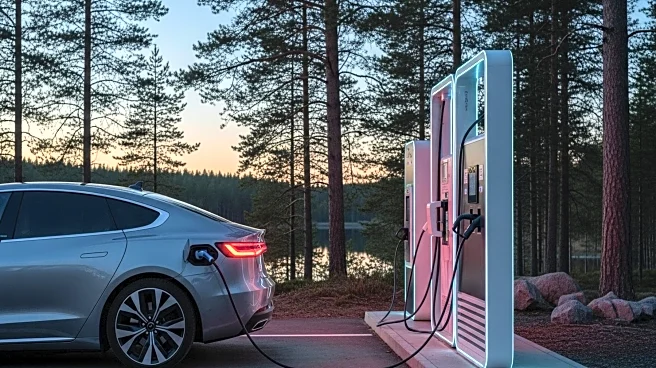What's Happening?
In August, Sweden's auto sales saw plugin electric vehicles (EVs) take a 59.0% share, with battery-electric vehicles (BEVs) at 33.6% and plugin hybrids (PHEVs) at 25.5%. This marks an increase from the previous year, although BEV share fell while PHEV share increased. The Volvo EX40 was the best-selling BEV, followed by the Volkswagen ID.7 and Kia EV3. The Mercedes CLA debuted with 30 initial units, featuring advanced BEV powertrains and class-leading range. Despite the growth, Sweden's transition to BEVs has slowed compared to previous years.
Why It's Important?
Sweden's EV market is a key indicator of the country's progress towards sustainable transportation. The increase in PHEV share suggests a shift in consumer preferences, while the decline in BEV share highlights challenges in the transition to fully electric vehicles. The debut of the Mercedes CLA with advanced technology could stimulate interest in BEVs and drive future growth. The market dynamics in Sweden are significant for the automotive industry, as they reflect broader trends in consumer behavior and technological advancements.
What's Next?
The Swedish EV market is expected to continue evolving, with potential for increased BEV adoption as new models enter the market. The Mercedes CLA's performance will be closely watched, as it could influence consumer preferences and drive competition among automakers. The macroeconomic environment, including GDP growth and inflation rates, will also impact the market's trajectory. Stakeholders will need to address barriers to BEV adoption to ensure continued progress towards sustainable transportation.










